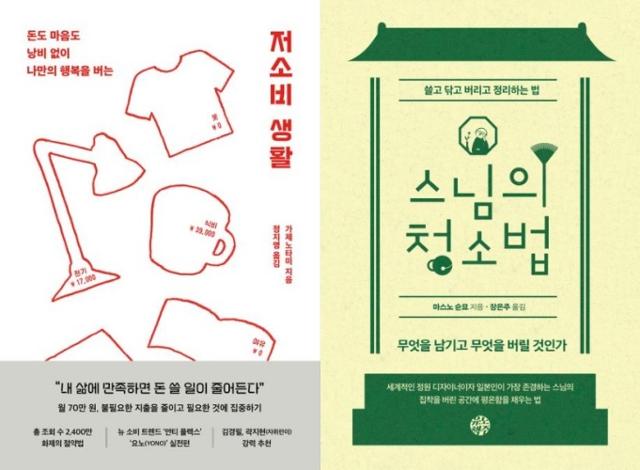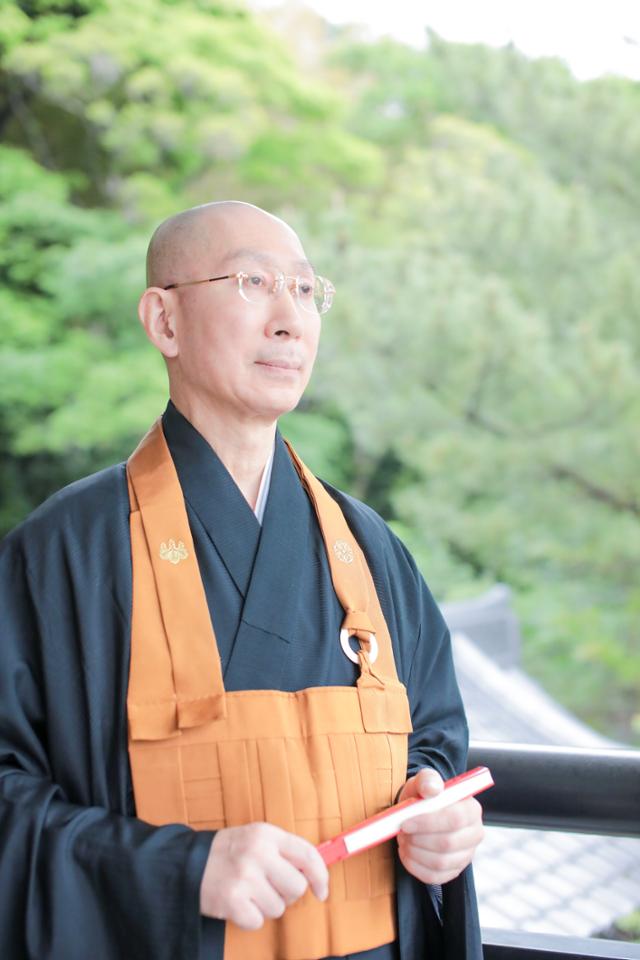Two Japanese self-help books, whose Korean titles translate as “The low-consumption life” and “The monk’s means of cleansing,” are gaining reputation amongst readers in search of a way of calm in a fast-paced, consumption-driven society. Each recommend that happiness will be rediscovered not by means of buying extra, however by means of consciously spending much less and clearing pointless issues from life.
“The explanation I desire a low-consumption way of life is that it permits me to maintain asking what really makes me pleased,” writer Kazenotami (pen identify) wrote in “The low-consumption life.” “I’m satisfied that I really feel happiness much more simply now than after I used to spend cash carelessly.”
“In Zen Buddhism, happiness doesn’t come from buying one thing new, however from letting go of what you don’t want,” mentioned Shunmyo Masuno, a Zen priest and writer of “The monk’s means of cleansing.”
Rediscovering happiness by means of low-consumption residing
Buyers browse at Lotte Mart in central Seoul, Oct. 29. Newsis
In contrast to conventional guides that emphasize frugality or effectivity, Kazenotami’s “The low-consumption life” begins with sensible steps however extends to redefining what it means to stay meaningfully. Since its launch lower than two months in the past, the guide has bought greater than 20,000 copies. Masuno’s “The monk’s means of cleansing” additionally noticed sturdy gross sales, going into its second print inside a month.
For Kazenotami, low consumption is just not about endurance or self-denial. “Residing with fewer issues and fewer cash isn’t about endurance — it’s about returning to your true self,” she mentioned. The writer encourages readers to look at unconscious spending and ask what really brings satisfaction.
She suggests, as an example, not merely avoiding cafes to save cash, however asking, “What precisely do I take pleasure in about going to a restaurant?” or “Can I recreate that feeling with out spending cash?” One in every of her key practices is the “zero-yen day,” which challenges the belief that enjoyment at all times requires spending.
“A ‘zero-yen day’ isn’t nearly not shopping for something,” the writer mentioned. “It helps overturn the assumption that enjoyable requires cash. Studying an unfinished guide, taking a stroll with out your telephone, or cleansing a uncared for nook of your property could make the day really feel richer.”
Kazenotami additionally promotes strategies reminiscent of budgeting expenditure originally of the month and alternating between modest and indulgent residing towards the month’s finish.

Entrance covers of “The low-consumption life” and “The monk’s means of cleansing” / Courtesy of every writer
A single-person family, she lives comfortably on about 700,000 gained ($500) per 30 days, together with 500,000 gained in hire. Her house lacks frequent home equipment reminiscent of a microwave, fridge, washer, mattress, or storage furnishings. She buys solely sufficient meals for the day, does laundry by hand, and owns round 10 clothes objects in whole.
Regardless of this simplicity, she feels a deeper sense of peace and freedom than when she spent greater than twice as a lot whereas working in Tokyo. After leaving her company job in her mid-30s, she now works as a contract YouTuber.
“Earlier than, I assumed spending cash all over the place was freedom,” she mentioned. “However I spotted true freedom is spending simply the correct quantity on what really issues. When happiness feels out of attain, making an attempt a low-consumption way of life may aid you regain your sense of pleasure.”
Cleansing as religious follow

Shunmyo Masuno / Courtesy of Uknow Books
For Masuno, chief priest of Kenkoji Temple and a famend backyard designer, day-after-day begins at 5 a.m. with cleansing. He sweeps the backyard and wipes the temple’s picket corridors. “Cleansing is a type of religious coaching,” he mentioned, urging everybody to spend a minimum of 5 minutes a day cleansing, regardless of how busy they’re.
“In Zen, there’s a saying: ‘First, cleansing; second, religion,’” Masuno defined. “After cleansing, everybody feels refreshed — not simply because the house is clear, however as a result of the mud and grime inside the center are additionally gone.”
Cleansing, he mentioned, is intently tied to letting go of attachment. In an age when social media continuously fuels shopper need, this isn’t simple. “Ask your self: ‘Is that this really needed?’ ‘Wouldn’t it simply be good to have?’ or ‘Wouldn’t it make my life really feel dreamy?’” he mentioned. “Whenever you assume this fashion, solely what’s really important stays.”
He additionally criticizes the trendy behavior of obsessively looking for cleansing devices earlier than cleansing itself. “Monks use solely 4 instruments: a brush, a material, a duster, and a bucket,” he mentioned. “Cleansing is about transferring your physique and investing your time — not counting on instruments or detergents.”
“Cleansing isn’t one thing you do as a result of others can see it, nor one thing you may neglect as a result of it’s hidden,” he mentioned. “It’s an act for your self.”
By eradicating pointless objects and wiping away grime, Masuno mentioned, one can free oneself from greed and self-importance. “When that occurs, your true self — as soon as hidden underneath thick clouds — reappears. In that straightforward, clear state, you rediscover who you actually are.”
That’s the reason he advises these dealing with a life crossroads to not rush into drastic adjustments, however to start out by cleansing, little by little.
At temple entrances, indicators typically learn “Look rigorously at your individual toes” and “Prepare your sneakers neatly.” Masuno interprets this as a reminder: “Concentrate on what you are able to do proper now, with sincerity.”
This text from the Hankook Ilbo, the sister publication of The Korea Instances, is translated by a generative AI system and edited by The Korea Instances.

